Money talkspublished at 09:07 BST 13 May 2015
BBC political correspondent tweets...
The government outlines new measures to tackle extremism and 'promote British values'
Theresa May disagrees with an EU chief who says no Mediterranean migrants will be forcibly returned home
Labour will select its new leader in mid-September, its ruling executive announces, as Andy Burnham and Yvette Cooper announce they will stand
Douglas Carswell insists he will not accept the £650,000 of public money UKIP is entitled to
Nominations officially open for the Lib Dem leadership contest
Dominic Howell, Marie Jackson and Andrew McFarlane
BBC political correspondent tweets...
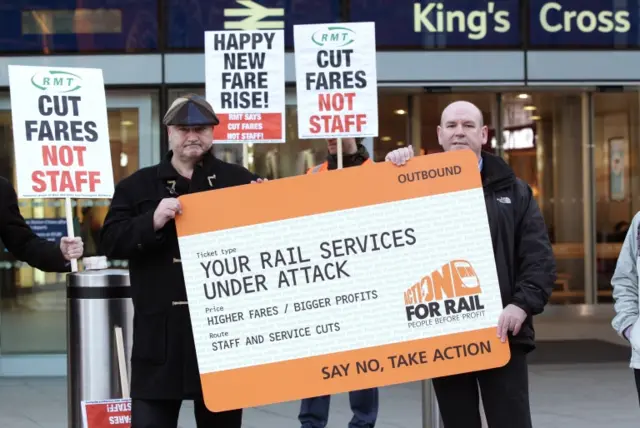 Image source, PA
Image source, PAMick Whelan (pictured right) with the late RMT leader Bob Crow
Mick Whelan, general secretary of the train drivers' union Aslef, tells Radio 5live that he doesn't think Labour has "moved very far away" from the centre ground and he doesn't regard "moving to the left" as a negative thing.
"What is wrong with the left? We talk about aspiration. The left is all about aspiration," he argues.
"We have to appeal to everybody" with both wealth-creators and workers allowed a share in the nation's wealth, he adds.
Mr Whelan also condemns government proposals to limit the right to strike.
Quote MessageHow is it fair that if someone bullies and hurts people, you have no way of dealing with it?"
BBC political correspondent tweets...
Via Twitter...
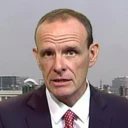 Norman Smith
Norman Smith
Assistant political editor
I think there will be a huge political debate about these proposals because of the very, very tricky line the government is trying to tread. How do you define exactly what is an extreme view that threatens democracy and the rule of law? It's a very grey area and very hard to come up with a clear legal definition. Promoting British values is relatively more straightforward - talking about classes in school, and the like - but actually coming up with the legal structure to bar people from espousing views you may not agree with is much, much trickier.
 BBC Radio 5 Live
BBC Radio 5 Live
Political columnist Steve Richards tells BBC Radio 5live that he thinks Labour should have "quite a long contest" to decide the new party leader. There should be extensive media scrutiny to see who has the ability for "the second toughest job in British politics".
And he claims that some of the arguments following the election about Labour "needing to speak to aspiration" are "waffle".
"Who is against aspiration?" he asks.
Any leadership candidate needs "to be on the political stage for several months in order to be tested", he argues.
Via Twitter...
 Today Programme
Today Programme
BBC Radio 4
Theresa May says the UK government has made clear that "we will not participate" in a quota scheme to take in migrants who cross the Mediterranean.
"If you look at people coming across the central Mediterranean... these are very often economic migrants," she argues.
They have paid criminal gangs to travel in vessels which the gangs "know are not seaworthy".
"Several thousand people have been allowed to settle in this country" as refugees, she adds.
 Today Programme
Today Programme
BBC Radio 4
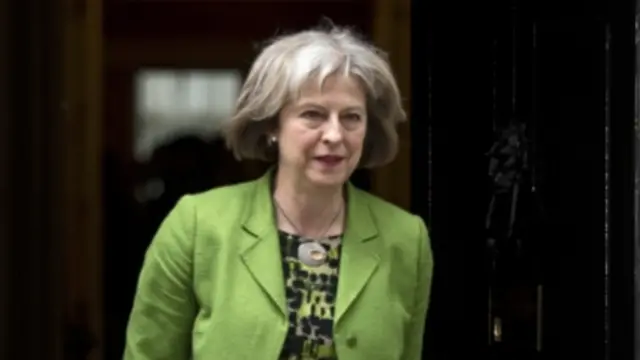 Image source, EPA
Image source, EPA"We are trying to deal... with those in our society who are actively promoting extremism," Theresa May says.
"We all have a right to live our lives as we want to live our lives, but we also have a duty to respect other people's right to live their lives as they choose," she argues.
Some people do not respect this and their views can "lead them down the path" of radicalisation, she argues.
The BBC's assistant political editor tweets...
 Today Programme
Today Programme
BBC Radio 4
Theresa May says the government's counter-extremism strategy is designed to combat people who are "seeking to divide us".
The home secretary tells the Today programme that "we are one nation" but some people want to divide us into "them and us".
She claims the measures will be "part of a bigger picture" which would includea strategy to "promote British values" - which, she says, include tolerance and respect for different faiths.
"Nobody is suggesting that different views cannot be expressed but one reason for looking at extremism in this way "is the path down which it can lead people", she adds.
 Today Programme
Today Programme
BBC Radio 4
 Image source, MoD
Image source, MoDSandro Gozi, a minister for European affairs in the Italian government, tells the Today programme that he disagrees with Theresa May's stance on migrants crossing the Mediterranean.
"It is totally unfair that four countries must bear the burden... in a union of 28 member states," he says.
However, he believes the UK is doing good work "at a UN level" against people smugglers and adds that the UK has the right to opt out from any quota to distribute migrants around the EU.
Quote MessageIt is up to the British to decide, remembering that, when you opt out of a decision, you opt out also from the debate and you opt out also from how to shape new policies."
The Guardian's home editor tweets...
 BBC Radio 5 Live
BBC Radio 5 Live
Lib Dem MP John Pugh, commenting on government plans to target radicalisation, warns against a "knee-jerk reaction that hasn't been properly thought through".
Sometimes laws "hit the buffers" when they are tested in the courts, he claims.
The measures should be worked out properly rather being designed simply to "please the Daily Mail", he adds.
 Today Programme
Today Programme
BBC Radio 4
Jonathan Russell, from counter-extremist think tank Quilliam,, external says the government's new anti-extremism measures "will tackle the symptoms not the causes" - and won't change either the ideology itself or the number of people attracted to it.
"They will disrupt it but I don’t think we should be looking solely to disrupt," he goes on, arguing the UK isn't investing enough in getting to the heart of the issue.
Quote MessageExtremism is like electricity, it will find the path of least resistance."
Mr Russell says that path used to be schools and universities, used to be mosques, but now it's the internet. He says the key is to give more education to people on the front line - teachers, lecturers, police officers and prison staff - who can address worrying views before people get "further onto the curve of radicalisation".
Quote MessageToo often over the last 15 years it’s looked like whack-a-mole. Yes there's a role for disruption… but we shouldn't negatively alter the fabric of our society when looking to tackle it either. I don't think we need ever-expanding legislation to deal with this."
Some views via Twitter...
 BBC Radio 5 Live
BBC Radio 5 Live
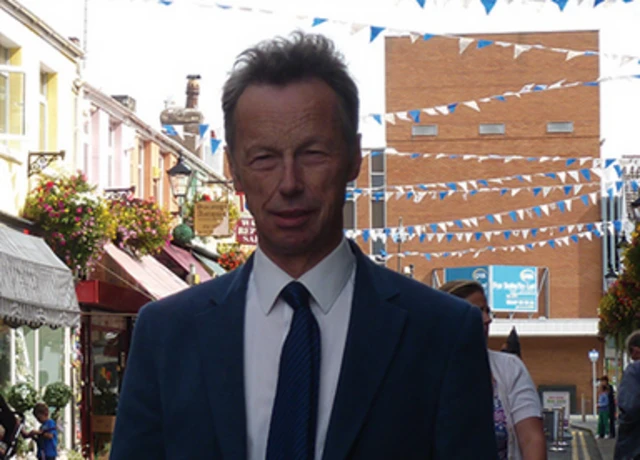 Image source, John Pugh
Image source, John PughJohn Pugh, the Lib Dem MP for Southport, tells BBC Radio 5 Live that - in a party leadership contest between fellow MPs Norman Lamb and Tim Farron - "Tim's got the edge."
Mr Farron has "clean hands" and took "principled views at times" - including voting against an increase in tuition fees - which has sometimes made things difficult for him in the party but has won him respect elsewhere, Mr Pugh argues.
 Today Programme
Today Programme
BBC Radio 4
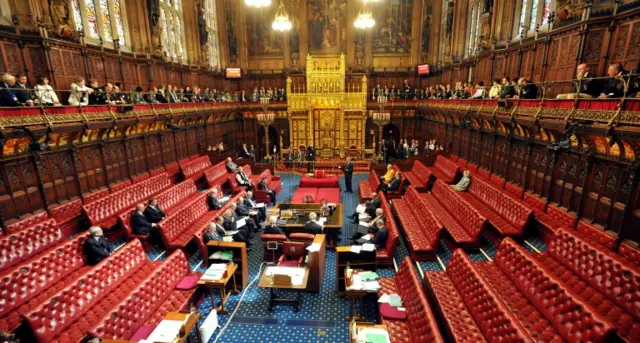 Image source, PA
Image source, PAThe Conservatives may have a narrow majority in the House of Commons but they don't have one in the House of Lords. They are massively outnumbered by opposition peers, which include 101 Liberal Democrats.
Lib Dem peer Lord Lester of Herne Hill tells the Today programme that, by convention, peers do not oppose measures in an elected government's manifesto but would seek to amend and "improve" bills.
The Conservative manifesto commits the government to introduce a British Bill of Rights and Lord Lester is a supporter of the existing Human Rights Act.
However, he says peers "would not block second reading of [a bill of rights] because it's a manifesto bill".
If it's not "weaker" than the act it would replace and the government gets the consent of devolved institutions, the bill will pass with amendments, he thinks.
 Today Programme
Today Programme
BBC Radio 4
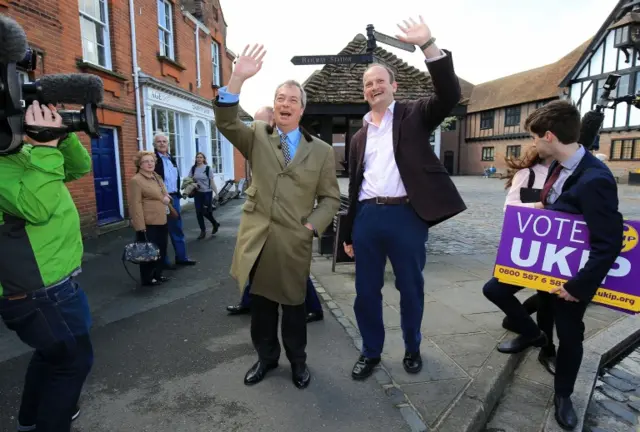 Image source, PA
Image source, PADouglas Carswell claims "there are one or two rather excitable staffers within UKIP" who want him to accept taxpayers' money to recruit 15 extra office staff.
"I'm not an American senator," the Clacton MP jokes, adding that he doubts that even Ed Miliband had 15 staff in his Commons office when he was Labour leader.
"UKIP's meant to be different and UKIP's going to be different," Mr Carswell says.
He adds that he is "absolutely certain" that UKIP leader Nigel Farage will see his decision to reject the money is the right one.
Asked for his view on Nigel Farage's reinstatement as leader, he adds:
Quote MessageI am very pleased that Nigel is party leader."
 Today Programme
Today Programme
BBC Radio 4
UKIP MP Douglas Carswell is on the Today programme, talking about his rejection of £650,000 of "short money" provided to opposition parties.
He says the rules were drawn up in the 1970s and "at the time those rules were drawn up no-one could have envisaged a situation when you have a party with four million votes and only one MP".
He says the money offered is "absurdly generous" and he is not willing to accept it.